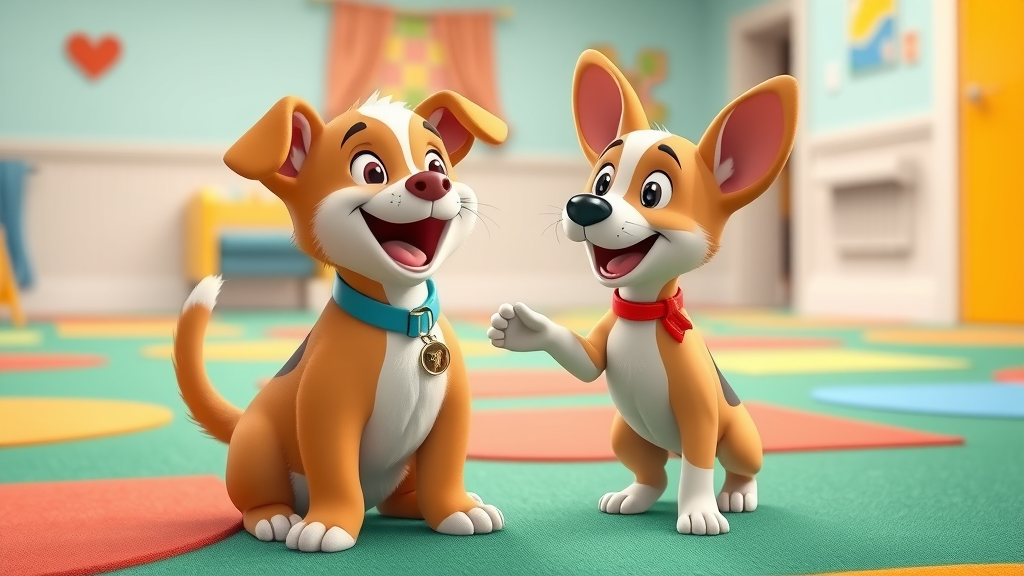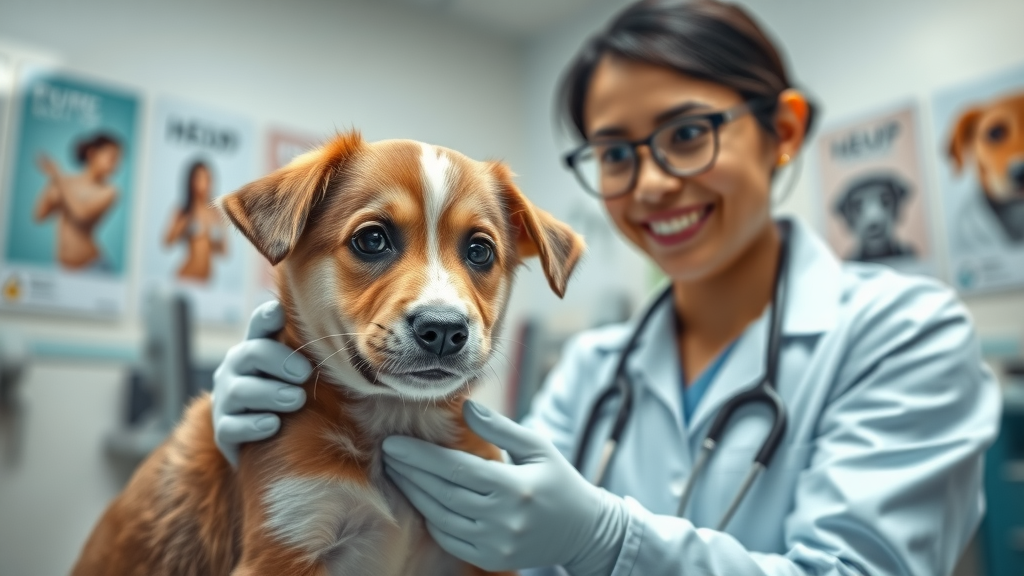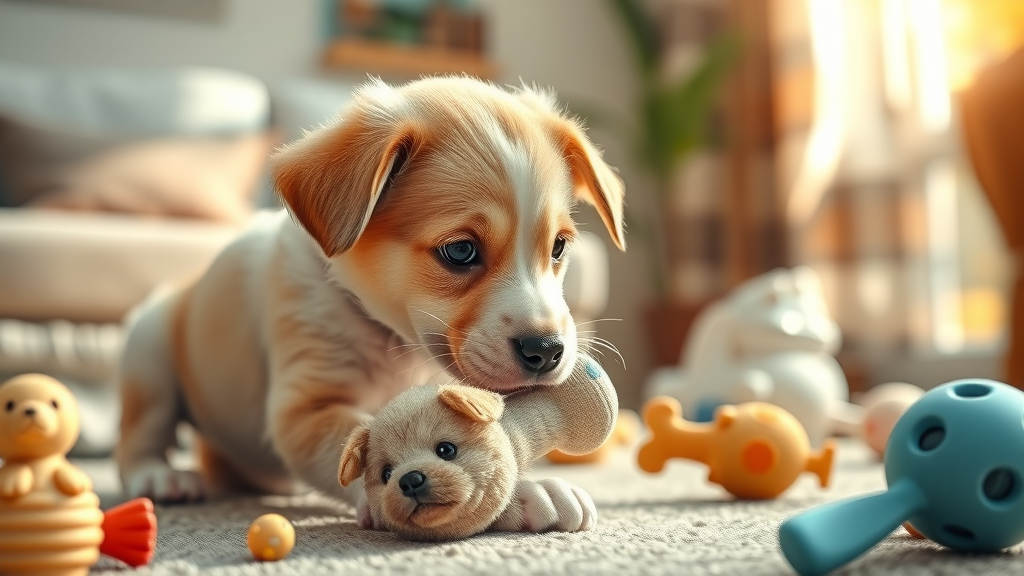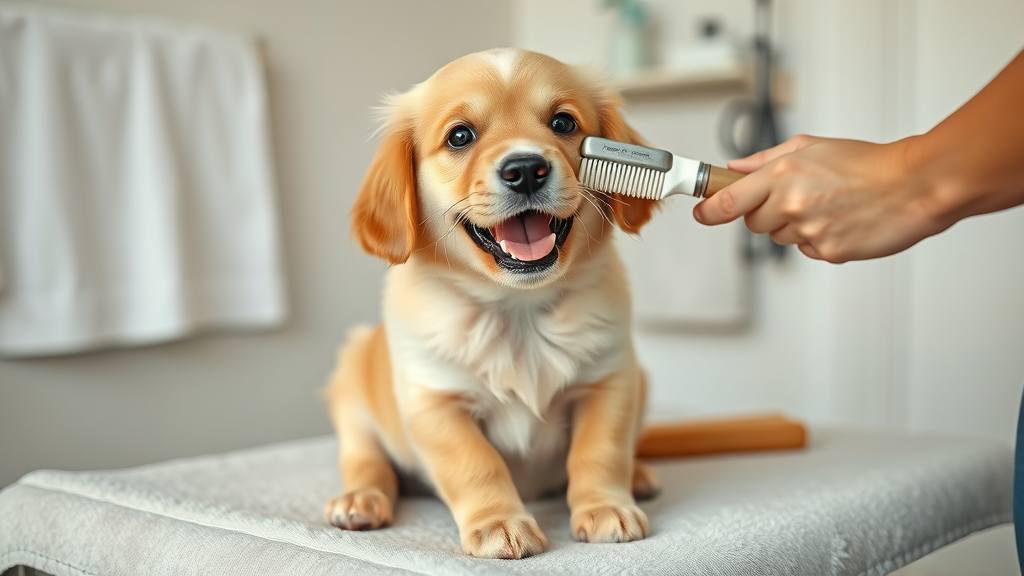“Did you know that nearly 65% of unexpected vet bills for puppies can be prevented with simple daily health routines?”
Welcoming a puppy is an exciting time filled with joy, cuddles, and playful moments—but it also means taking on the responsibility to keep your fur baby healthy and safe. Puppies are naturally curious and vulnerable, so the little choices you make each day matter more than you might expect. In fact, investing in puppy health essentials right from the start dramatically reduces the risk of surprise vet expenses down the road. Armed with the right know-how, you can ensure your lovable companion grows into a robust and happy adult dog, saving heartache—and cash—along the way.
In this ultimate guide, you’ll learn:
- The must-have puppy health essentials for every new owner
- How to pick the best puppy food for growth and wellness
- Preventative care tips, including dental care and parasite control
- The importance of training your puppy for long-term health
- How the right puppy home environment leads to fewer vet trips
- Professional advice for keeping your new puppy safe, happy, and healthy
Mastering Puppy Health Essentials: Start Right, Save Money
Setting the foundation for your puppy’s lifelong pet health may seem overwhelming, but starting with the right habits can make an incredible difference. The main puppy health essentials range from selecting the appropriate puppy food to creating a safe puppy home , and embracing preventive routines such as dental care and chew toys . By prioritizing wellness before issues arise, you’ll avoid many of the common, costly vet visits triggered by preventable problems like poor diets, dental issues, parasite infestations, or behavioral challenges.
For example, regularly brushing your puppy’s teeth and offering teething toys do more than keep puppy teeth clean—they actively prevent oral diseases that can become expensive emergencies. Quality puppy food not only fuels rapid growth but strengthens your pup’s immune system, reducing the risk of allergies and chronic issues. Likewise, a well-prepared puppy home shields your furry friend from accidents and anxiety, while consistent training your puppy shapes a confident, obedient adult. By focusing on these essentials early, you cultivate a happy, hardy companion and sidestep unnecessary veterinary costs.

Puppy Health Essentials Checklist: What Every Owner Needs
When you bring your puppy home for the first time, equipping yourself with a proper checklist is a good idea . These puppy health essentials will ensure your pup transitions easily, stays nourished, and develops positive routines from the first day. The key is to look at each need holistically—from nutrition, comfort, exercise, and hygiene, to behavioral enrichment and safety.
Providing an age-appropriate dog bed for rest, reliable dog bowls for clean meals, and engaging chew toys for teething doesn’t just keep your house organized. It helps your furry friend avoid accidents, discourages destructive biting, and encourages independent play. Similarly, quality grooming tools and training aids, like a sturdy training leash and positive reinforcement items, offer peace of mind and create a nurturing space for rapid, healthy development.
| Essential Item | Purpose | Tips |
|---|---|---|
| High-quality puppy food | Supports healthy growth | Choose age-appropriate formulas |
| Dental care products | Prevents oral diseases | Use puppy-specific toothbrushes |
| Chew toys | Promotes dental health, prevents boredom | Use size-appropriate, durable toys |
| Grooming supplies | Keeps coat and skin healthy | Brushing and regular bathing |
| Crate and bedding for puppy home | Ensures comfort and safety | Introduce gradually |
| Training aids | Essential for obedience and safety | Positive reinforcement tools |
Choosing Puppy Food: Nutrition as a Vital Puppy Health Essential
A carefully chosen puppy food forms the cornerstone of every puppy health essentials plan. Unlike adult dog food, puppy-specific formulas are designed to meet a young dog’s unique nutritional demands, including higher protein, energy, and nutrient levels for rapid growth. When you invest in top-quality puppy food , you protect your fur baby against digestive upsets, allergies, and even chronic diseases later in life. It’s important to check for the AAFCO nutritional adequacy statement —this guarantees the food meets all vital requirements for healthy puppies.
Make it a practice to consult your veterinarian before selecting a brand or recipe. Reading the label for protein-rich ingredients and avoiding artificial colors, preservatives, or fillers is always a good option . Remember, the investment in premium nutrition today means less likelihood of costly vet visits tomorrow, and a much happier, more resilient companion at your side.
Key Nutrients for Growing Pups: Fueling Health and Development
“Balanced puppy food is the cornerstone of lifelong health. Investing in quality nutrition prevents digestive issues, allergies, and chronic conditions.” – Dr. Linda Brooks, DVM
Puppies need precise nutrients to fuel strong bones, sharp minds, and robust immune systems. Key elements include animal proteins for muscle development, healthy fats for skin and coat, as well as calcium and phosphorus for growing bones. Don’t overlook the critical benefits of omega fatty acids —they boost brain development and help stave off future issues with joints and immunity.
- Age-appropriate formula
- AAFCO nutritional adequacy statement
- Protein-rich ingredients
- No artificial additives
Regularly rotate puppy food flavors to expose your pup to a variety of tastes and nutrients, but always transition slowly to avoid stomach upset. By prioritizing balanced nutrition, you lay the foundation for a vibrant adulthood, reduce the risk of allergic reactions, and help prevent chronic health challenges linked to diet.

Dental Care: A Puppy Health Essential for Long-Term Wellness
Many pet owners underestimate the importance of dental care as part of puppy health essentials, even though dental disease is one of the most common—and costly—issues veterinarians see. Early investments in dog dental routines can spare your furry friend pain and spare you thousands of dollars in veterinary bills later on. Establishing a brushing schedule, using dental chews, and frequently checking your puppy’s mouth for signs of decay or discomfort are all critical habits.
Keeping your puppy’s teeth clean goes beyond fresh breath; it prevents inflammation, tooth loss, and infections that can spread to major organs. Your vet can suggest puppy-specific toothbrushes and safe dental chews, many of which double as teething toys . These interventions are highly effective at removing plaque and massaging gums, making them an essential part of your overall pet health regimen.
Best Practices for Puppy Dental Care
- Start dental care early—introduce teeth brushing as soon as possible
- Use vet-approved dental chews and toys
- Schedule regular dental check-ups during puppy vet appointments
Getting your puppy comfortable with dental care routines from the first weeks of age helps avoid fear or resistance as they mature. Use positive reinforcement, go slow with new tools, and always end on a good note with treats or affection. Dental visits should become routine parts of wellness exams, ensuring any problems are caught—and treated—early. Remember, the foundation you lay now in dental care saves money and major health headaches just a few years down the road.

Puppy Home Preparation: Creating a Safe and Healthy Environment
A well-prepared puppy home makes all the difference between a confident, secure puppy and one prone to accidents or anxiety. Start by identifying and removing household hazards such as exposed cords, small objects, or toxic plants—anything that could be chewed, swallowed, or knocked over. Safety-proofing is one of the most practical puppy health essentials and goes hand-in-hand with a structured sleeping area and reliable boundaries.
Creating a dedicated sleeping area away from heavy foot traffic gives your fur baby a sense of security and helps speed up both house training and nighttime routines. Choose a cozy dog bed that’s easy to clean and comfortable, and consider a crate for naps or travel. Place clean dog bowls for food and water in an easily accessible spot and refresh water multiple times daily. Finally, make sure there’s always access to natural light and regular outdoor play, especially in safe, fenced areas.
Safety-Proofing Your Space: Puppy Home Fundamentals
- Remove choking hazards
- Secure electrical cords and dangerous items
- Ensure access to clean water
- Set up a cozy, quiet sleeping space
These fundamentals set the stage for fewer injuries or sudden rushes to the animal hospital. By addressing potential risks proactively, you turn your living space into an enriching training ground, not a source of danger.
Training Your Puppy: A Health Essential for Mind and Body
Training your puppy is about far more than obedience—it’s a preventative health step that ensures your dog is safe at home and in public. When you focus on positive reinforcement and consistency, you reduce the risk of problem behaviors that often lead to injury or anxiety-related illnesses. Structured training includes gentle housebreaking, socialization with other animals, and teaching “safe” commands that can defuse dangerous situations.
Puppies that learn to respond to commands, walk confidently with a training leash , and are comfortable around strangers experience lower stress, improved health, and closer bonds with their families. Tackling issues like nipping, chewing, or barking early on keeps your puppy home harmonious and protects your belongings in the process. Plus, the routine of training your pup provides essential mental stimulation that aids brain development and curbs boredom-related issues.
House Training and Socialization as Puppy Health Essentials
- Initiate house training with patience and consistency
- Socialize your puppy to reduce fear and anxiety
- Address chewing and biting behaviors with proper chew toys
Starting house training the moment you bring your puppy home sets up a lifetime of good habits. Be patient, use clear routines, and reward every step of progress. Socialization should include gentle exposure to new people, animals, and sounds. Correct biting or chewing by redirecting your puppy to chew toys rather than punishing negative behaviors. This approach not only produces a happier pup, but drastically reduces the risk of stress-related illnesses or destructive behaviors as they mature.

Chew Toys and Enrichment: Supporting Behavioral and Dental Health
The right chew toys are invaluable puppy health essentials , supporting everything from dental health and teething to anxiety reduction and boredom management. Puppies have an instinctive need to chew—especially during teething phases—so safe, durable toys are a must to protect your dog bed , shoes, and household items from destruction. Good teething toys also massage gums and help keep puppy teeth clean, reducing the chance of dental disease.
When rotating a variety of chew toys , you also provide vital mental stimulation , which is a key factor in overall pet health and development. Consider interactive toys and puzzle feeders for extra enrichment. Just as importantly, always choose size-appropriate and non-toxic products; consult your vet or local animal shelter for recommendations.
How Chew Toys Become Puppy Health Essentials
- Promote healthy teeth and gums
- Prevent destructive behavior
- Provide mental stimulation
Making chew toys a staple in your puppy’s daily life means happier pets, healthier mouths, and fewer furniture casualties!
Routine Medical Care: Critical Puppy Health Essentials
Preventive veterinary care is the linchpin of responsible puppy ownership. Routine medical care includes scheduled vaccinations, parasite prevention, fecal exams, and regular vet visits—all designed to intercept problems early and keep your puppy, and your wallet, safe from emergencies. From as young as six weeks of age, critical rounds of vaccines safeguard your pup from severe illnesses like distemper, parvo, and rabies.
Your vet will outline a precise healthcare calendar, including regular deworming , flea and tick control, and periodic wellness checks to monitor growth and development. Don’t hesitate to update your vet with changes in appetite, behavior, or energy—this helps catch underlying concerns before they become serious. Investing in preventive medical care today is the surest path to ongoing wellness and reduced risk of costly treatments later.
Vaccinations, Parasite Prevention, and Vet Visits
- Follow a puppy-specific vaccination schedule
- Regular deworming and flea/tick prevention
- Schedule wellness checks with your veterinarian
Keeping your contact information up-to-date with your veterinary clinic helps in emergencies. And remember, proper medical records will make travel, grooming, and future care much easier—especially if you ever adopt from an animal shelter or need to board your furry friend .

Video: House Training Your Puppy—Top Tips for Puppy Health Essentials
Coming soon: Watch step-by-step tips on successful house training and how it supports every puppy health essential.
People Also Ask: What essentials do I need for a new puppy?
Essential new puppy items include quality puppy food, proper dental care tools, safe chew toys, grooming supplies, a comfortable puppy home setup, and basic training supplies. Providing these will give your puppy a healthy start.
People Also Ask: What is the 3 second rule for puppies?
The '3 second rule' is a socialization guideline recommending that interactions, like greetings with new people or dogs, should not exceed three seconds. This prevents overstimulation and stress, supporting puppy health essentials in early development.
People Also Ask: What is the puppy 1/2 rule?
The 'puppy 1/2 rule' suggests that puppies can safely exercise for up to five minutes per month of age, twice a day. Following this rule is a key puppy health essential to avoid overexertion and promote healthy growth.
People Also Ask: What medical care do puppies need?
Puppies need scheduled vaccinations, regular deworming, dental care, parasite prevention, and vet checkups. These puppy health essentials ensure disease prevention and support long-term wellness.
Video: How to Brush Your Puppy’s Teeth—Step-by-Step Dental Care
Stay tuned for a visual guide on introducing dental care and maintaining teeth for lifelong canine wellness.
Frequently Asked Questions About Puppy Health Essentials
- When should I start dental care for my puppy?
- How do I choose safe chew toys?
- How often should a puppy see the vet?
- Can puppy food be given to adult dogs?
When should I start dental care for my puppy? Begin dental care as soon as your puppy arrives, even before adult teeth grow in. Early brushing builds cooperative habits and prevents tartar buildup.
How do I choose safe chew toys? Pick age- and size-appropriate toys made from non-toxic materials. Avoid anything small enough to swallow or hard enough to break your puppy’s teeth. Your vet or pet store professional can provide recommendations tailored to your furry friend.
How often should a puppy see the vet? Puppies require multiple vet visits during their first year for vaccinations, deworming, and checkups. Afterward, annual wellness appointments are recommended to ensure ongoing pet health .
Can puppy food be given to adult dogs? No, puppy food is formulated for growing dogs and contains higher energy and nutrient levels. Feeding it long-term to an adult dog may lead to weight gain or imbalances. Always provide species- and age-appropriate diets.
Expert Tips for Long-Term Puppy Health Essentials
- Keep up with vaccination and preventative care schedules
- Rotate chew toys to stimulate your puppy
- Daily grooming prevents skin problems
- Use training your puppy as a way to build your bond
Following these expert recommendations helps reinforce every element of puppy health essentials, resulting in a resilient, well-adjusted, and joyful companion.
Video: Building the Perfect Puppy Home—A Healthy Environment Guide
NEW: Explore puppy home safety and setup tips for a nurturing environment.
Key Insights Every Puppy Parent Should Know
- Investing in puppy health essentials now saves on costly vet bills later
- Consistency in training your puppy ensures long-term health
- A safe, enriched puppy home reduces accidents and supports puppy development
Remember these takeaways for an easier, more enjoyable journey as you raise your fur baby.
Start Your Puppy’s Journey With These Health Essentials and Prevent Emergencies
- By prioritizing puppy health essentials, you will set your pup up for a happy, healthy, and well-behaved life. Begin today and see lasting benefits for you and your beloved companion.
To further enhance your understanding of puppy health essentials and ensure your new companion thrives, consider exploring the following resources:
- “New Puppy Checklist: Starter Kit of Puppy Essentials” ( thevets.com )
This comprehensive guide outlines the fundamental items and practices necessary for a puppy’s well-being, including nutrition, grooming, and safety measures.
- “New Puppy Checklist: 14 Must-Have Essentials” ( paw.com )
This article provides a detailed list of essential items and tips to prepare your home and lifestyle for a new puppy, ensuring a smooth transition and healthy development.
By delving into these resources, you’ll gain valuable insights and practical advice to support your puppy’s health and happiness, ultimately helping you avoid unexpected veterinary expenses.
 Add Row
Add Row  Add
Add 








Write A Comment